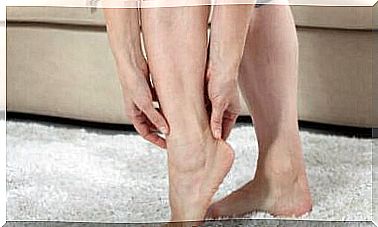Advice Not To Fail With Your Diet

Tired of constantly failing with your diet? Do you want a healthier lifestyle without having to deal with so many failures? First of all, it is important not to lose hope.
In this article, we’ll give you some guidelines to help you through this process. Most importantly, they will help you in the long run.
Are you ready for it? Then pay attention, and most importantly, take action.
1. See it as an opportunity

Stop seeing your diet as a punishment and consider it a long-term change.
One of the main reasons people fail with their diet is because they see it as a negative consequence of their lifestyle. If you make this mistake too, you will find yourself constantly thinking about when to stop.
The problem with this is that, even if you do manage to lose a few pounds, they’ll probably come right back on as soon as you stop your diet. It is important to mentally prepare yourself for the idea that the diet is a change to improve your life and not just a way to lose ‘x’ number of pounds.
This way you will no longer see your diet as something negative. Remember:
- Don’t set a date for the end of your diet.
- Reward yourself every time you reach a goal. Then create new goals as you go along.
2. Avoid Restrictive Diets

Although restrictive diets are often very famous, they are not always a good idea. If your doctor hasn’t recommended it to you and there’s no real reason to take one, don’t do it.
There are two problems with these types of diets:
- First, they don’t teach you to eat right. Because of the nutritional deficiencies in these diets, they do not give you good nutritional habits. In some cases, they can even lead to the opposite effect. That is, you may lose nutrients and pounds of muscle instead of pounds of fat.
The best way not to fail with your diet is to follow a diet designed just for you. It is a good idea to seek advice from a nutritionist who can teach you how to prepare balanced meals according to your taste. Another option is for the nutritionist to compose the menu. Then all you have to do is prepare it.
- Second, restrictive diets are for shorter periods of time. Because they restrict nutrients, they are never recommended for a long period of time. Most of these types of diets are recommended for 3 to 7 days. This means that you will not see long-term results. Following such a diet regularly will make you feel tired and ill-tempered.
3. Learn about healthy lifestyles

Instead of following diets that promise miraculous weight loss, it’s better to understand how your body works and why it needs certain nutrients. Most importantly, learn more about these nutrients, where they come from, and the best ways to include them in your diet.
This way, you won’t see the healthy diet as a punishment. By being more informed, you are less likely to be tempted to always eat what you shouldn’t. Sure, you can give yourself a treat sometimes, but you’ll be more aware of how it affects your body and the right amount to eat to avoid long-term damage.
Don’t want to fail with your diet either?
If you have any doubts and do not want to fail with your diet, seek advice from a nutritionist. Most nutritionists will explain how foods work in your body. They will also teach you to make the right decisions. If your nutritionist hasn’t already done so, ask them to explain and help you understand how the servings they recommend work.
4. Leave room in your diet for foods you like but aren’t very healthy

Diet failure is less likely if you keep an open mind to less healthy foods every now and then. Some nutritionists allow one day or one meal to help you with this process.
Even if you can’t or don’t want to pay a specialist, make sure that at least 80% of your diet is based on fresh vegetables, fruits, meat, dairy products, and legumes. You can use the rest for less healthy food.
The ideal option is to make this food at home. For example, instead of ordering the same pizza as always, learn to make pizza dough and make some homemade varieties with fresh vegetables and other ingredients.









